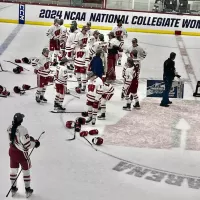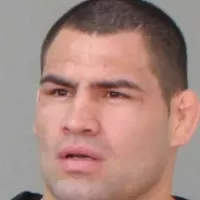National Public Radio (NPR) is an American public broadcasting organization based in Washington, D.C., with a secondary headquarters in Culver City, California. NPR operates as a national syndicator, distributing content to a network of over 1,000 public radio stations throughout the United States. It plays a significant role in delivering news and cultural programming to a wide audience.
1967: Public Broadcasting Act
In 1967, the Public Broadcasting Act was signed into law by President Lyndon B. Johnson, establishing the Corporation for Public Broadcasting, which created NPR and PBS.
February 26, 1970: NPR replaces National Educational Radio Network
On February 26, 1970, NPR replaced the National Educational Radio Network, following passage of the Public Broadcasting Act of 1967.
1970: National Public Radio Legal Name
Since 1970, National Public Radio has remained the legal name.
May 3, 1971: All Things Considered premiered
On May 3, 1971, All Things Considered premiered, hosted by Robert Conley.
1977: Merger with Association of Public Radio Stations
In 1977, NPR merged with the Association of Public Radio Stations, becoming more than just a production and distribution organization.
November 5, 1979: Morning Edition premiered
On November 5, 1979, Morning Edition premiered, first hosted by Bob Edwards.
1983: 1983 funding crisis
During the 1970s and early 1980s, the majority of NPR funding came from the federal government, but the 1983 funding crisis forced the network to make immediate changes.
1983: Financial Setback and Restructuring
In 1983, NPR faced a significant financial crisis with a deficit of nearly $7 million due to expansion efforts. This led to a Congressional investigation, the resignation of NPR's president, and a new funding arrangement with the Corporation for Public Broadcasting. NPR also turned its satellite service into a cooperative venture.
January 1994: Delano Lewis becomes NPR's CEO and president
In January 1994, Delano Lewis became NPR's CEO and president, leaving his position at C&P Telephone.
1994: NPR Cancelled Commentaries by Mumia Abu-Jamal
In 1994, NPR cancelled a series of commentaries by Mumia Abu-Jamal after objections from the Fraternal Order of Police and members of the U.S. Congress.
August 1998: Delano Lewis resigns
In August 1998, Delano Lewis resigned from his position as NPR's CEO and president.
November 1998: Kevin Klose hired as president and CEO
In November 1998, NPR's board of directors hired Kevin Klose as its president and chief executive officer.
1998: Lisa Simeone begins working for NPR
In 1998, Lisa Simeone began working for NPR. She later accused NPR's Pentagon reporting of being "little more than Pentagon press releases."
1999: Public Interactive Founded
In 1999, Public Interactive was founded as an independent, for-profit company.
November 2002: NPR West opens
In November 2002, NPR West, a 25,000-square-foot production facility in Culver City, California, opened to expand production capabilities and improve coverage of the western United States.
2002: Lisa Simeone worked at NPR
Lisa Simeone worked for NPR until 2002.
November 2003: Largest Monetary Gift Ever
In November 2003, NPR received $235 million from the estate of Joan B. Kroc, the widow of McDonald's Corporation founder Ray Kroc. This was the largest monetary gift ever to a cultural institution.
June 2004: PRI Acquires Public Interactive
In June 2004, PRI acquired Public Interactive, an independent for-profit company founded in 1999, and turned it into a non-profit company.
2004: Kroc gift increases budget
In 2004, the Kroc gift increased NPR's budget by over 50% to $153 million, with $34 million deposited in its endowment.
August 2005: NPR enters podcasting
In August 2005, NPR entered podcasting with a directory of over 170 programs created by NPR and member stations.
2005: NPR Most Trusted News Source
A Harris telephone survey conducted in 2005 found that NPR was the most trusted news source in the United States.
2005: NPR's Budget
In 2005, NPR's budget was about $120 million.
September 2006: Ken Stern becomes chief executive
In September 2006, Ken Stern became NPR's chief executive, succeeding Kevin Klose, who remained as president.
March 2008: Ken Stern stepping down
In March 2008, the NPR Board announced that Ken Stern would be stepping down from his role as chief executive officer.
July 2008: NPR Acquires Public Interactive from PRI
In July 2008, NPR acquired Public Interactive from PRI. Public Interactive had 170 subscribers who collectively operated 325 public radio and television stations and clients such as Car Talk, The World, and The Tavis Smiley Show.
December 10, 2008: Workforce reduction and program cancellations
On December 10, 2008, NPR announced a 7% workforce reduction and the cancellation of Day to Day and News & Notes, due to a drop in corporate underwriting.
2008: NPR Listener Data
In 2008, NPR had 20.9 million listeners each week.
2008: NPR's Facebook Page Created
In 2008, college student and fan Geoff Campbell started NPR's Facebook page, which was quickly taken over by the organization and grew to nearly 4 million fans.
2008: Record reach of NPR programming
In the fall of 2008, NPR programming reached a record 27.5 million people weekly, with NPR stations reaching 32.7 million listeners overall.
March 2, 2009: Vivian Schiller Speech on Underwriting Revenue
On March 2, 2009, NPR President and CEO Vivian Schiller stated that underwriting was down for NPR during a speech before the National Press Club.
2009: Percentage of public radio funding from federal sources
According to Corporation for Public Broadcasting (CPB), in 2009 11.3% of the aggregate revenues of all public radio broadcasting stations were funded from federal sources, principally through CPB.
2009: NPR revenues
According to the 2009 financial statement, about 50% of NPR revenues come from the fees it charges member stations for programming and distribution charges.
2009: Corporate sponsorship percentage
As of 2009, corporate sponsorship comprised 26% of the NPR budget.
2009: NPR Banned Use of the Word "Torture"
In 2009, NPR banned the use of the word "torture" in regard to the George W. Bush administration's employment of so-called "enhanced interrogation techniques".
June 2010: NPR focuses on its brand name
In June 2010, NPR announced that it would consistently refer to itself as NPR on-air and online, solidifying NPR as the common name.
October 2010: $1.8 million grant from Open Society Institute
In October 2010, NPR accepted a $1.8 million grant from the Open Society Institute to begin the Impact of Government project, aiming to add at least 100 journalists at member stations by 2013.
October 20, 2010: NPR Terminated Juan Williams's Contract
On October 20, 2010, NPR terminated Senior News Analyst Juan Williams's independent contract over remarks he made on the Fox News Channel.
2010: NPR revenues totaled $180 million
In 2010, NPR revenues totaled $180 million, with the bulk of revenues coming from programming fees, grants from foundations or business entities, contributions and sponsorships.
January 4, 2011: Ellen Weiss Given Ultimatum
On January 4, 2011, NPR's top news executive, Ellen Weiss, was given an ultimatum to either resign or be fired, related to the firing of Juan Williams.
January 6, 2011: Ellen Weiss Quit NPR
On January 6, 2011, NPR announced that Ellen Weiss had quit.
March 2011: James O'Keefe Scandal and Vivian Schiller Resignation
In March 2011, James O'Keefe secretly recorded a discussion with Ronald Schiller, NPR's outgoing senior vice president for fundraising, leading to disavowal of his comments and the resignation of CEO Vivian Schiller.
March 2011: NPR Reveals Restructuring Proposal
In March 2011, NPR revealed a restructuring proposal in which Boston-based Public Interactive would become NPR Digital Services, separate from the Washington D.C.–based NPR Digital Media, which focuses on NPR-branded services. NPR Digital Services would continue offering its services to public TV stations.
March 2011: WNYC Discusses Liberal Bias
In March 2011, NPR station WNYC in New York City delved into the question of purported liberal bias on its On the Media program.
2011: Online advertising network roll-out
In 2011, NPR announced the roll-out of their own online advertising network, which allows member stations to run geographically targeted advertisement spots from national sponsors.
2012: Pew Research Center Survey on NPR Audience Political Leaning
A 2012 Pew Research Center survey found that the NPR audience leans Democratic (17% Republican, 37% independent, 43% Democratic) and politically moderate (21% conservative, 39% moderate, 36% liberal).
2012: Pew Research Center 2012 News Consumption Survey
According to the 2012 Pew Research Center 2012 News Consumption Survey, NPR listeners tend to be highly educated.
2012: Percentage of revenues from federal sources
In 2012, 10.9% of the revenues for Public Radio came from federal sources.
April 2013: NPR moves to new headquarters
In April 2013, NPR moved to new offices and production facilities at 1111 North Capitol Street NE in Washington, D.C. from its home of 19 years. Weekend Edition Saturday was the first show broadcast from the new studios and Morning Edition was the last show to move.
June 2013: NPR cancels Talk of the Nation
In June 2013, NPR canceled the weekday call-in show Talk of the Nation.
September 2013: Voluntary buyout plan offered
In September 2013, NPR offered a voluntary buyout plan to certain employees to reduce staff by 10 percent and return to a balanced budget by the 2015 fiscal year.
2013: Impact of Government project target year
By 2013, the Impact of Government project, funded by the Open Society Institute, intended to add at least 100 journalists at NPR member stations.
2013: Launch of Center Stage with Squarespace
In 2013, NPR launched Center Stage, a mix of native advertising and banner ads featured prominently on the NPR homepage. Squarespace was the launch partner for Center Stage.
July 2014: NPR One App Launched
In July 2014, NPR launched NPR One, an app for iOS and Android smartphones and other mobile devices, to make it easier for listeners to stream local NPR stations live and listen to NPR podcasts.
2014: NPR to Increase Revenue
In 2014, NPR CEO Jarl Mohn announced the network would increase revenue by partnering with brands more relevant to their audience and requesting higher rates from them.
2014: NPR Listener Trust
In 2014, Pew reported that 55% of adults who had heard of NPR trusted it, which was a similar level of listener trust as CNN, NBC, and ABC.
March 2015: Podcast Downloads Milestone
By March 2015, NPR podcasts were downloaded 94 million times, with programs like Fresh Air and TED Radio Hour frequently appearing on iTunes Top Podcasts list.
November 2, 2015: Change in NPR Bylaws to expand board of directors
On November 2, 2015, NPR Members approved a change in the NPR Bylaws to expand the board of directors to 23 directors.
2015: NPR Audience Demographics
According to 2015 figures, 87% of the NPR terrestrial public radio audience and 67% of the NPR podcast audience is white.
2015: Target fiscal year for balanced budget
By the 2015 fiscal year, NPR aimed to return to a balanced budget through a staff reduction plan initiated in September 2013.
2016: NPR One Listed as One of the Best Apps
In 2016, The New York Times listed NPR One as one of the "best apps".
2016: 2016 United States presidential election
In 2024, veteran NPR journalist Uri Berliner stated that NPR demonstrated a left-wing bias in its reporting after the 2016 United States presidential election.
July 4, 2017: NPR's July 4th Declaration of Independence Twitter Reading Draws Ire
On July 4, 2017, NPR's annual reading of the Declaration of Independence on Twitter, consisting of over 100 tweets, sparked controversy. Some online supporters of Donald Trump mistakenly interpreted the Declaration's words about George III as being directed at the president, leading to accusations of "propaganda" and condoning violence.
October 2017: Sexual Harassment Allegations Against Michael Oreskes
In October 2017, Michael Oreskes, NPR's senior vice president of news and editorial director, faced sexual harassment charges. Accusations stemmed from his time at The New York Times and his conduct at NPR, where eight women filed complaints against him. Oreskes was placed on administrative leave, then resigned at the request of CEO Jarl Mohn and was denied severance benefits.
2017: Nielsen Ratings Data for NPR Programs
According to 2017 Nielsen ratings data, NPR's Morning Edition drew 14.63 million listeners a week, while All Things Considered drew 14.6 million listeners a week.
2017: NPR Listener Data
In 2017, NPR reached a high of 37.7 million listeners each week.
March 2018: Drive-time programs audience size
As of March 2018, NPR's drive-time programs, Morning Edition and All Things Considered, attracted an audience of 14.9 million and 14.7 million per week, respectively.
May 2018: NPR Acquires Pocket Casts
In May 2018, a group led by NPR acquired the podcasting app Pocket Casts.
September 30, 2018: Total Operating Revenues
For the year ended September 30, 2018, NPR's total operating revenues were $235 million.
December 2018: Launch of Remote Audio Data (RAD)
In December 2018, NPR launched Remote Audio Data (RAD), a new podcast analytics technology designed to share listening metrics while respecting user privacy.
December 2018: High percentage of temporary staff
In December 2018, The Washington Post reported that between 20 and 22 percent of NPR staff was classified as temporary employees, leading to discussions about the system's fairness.
2018: PRX Merges with Public Radio International
In 2018, Public Radio Exchange (PRX) merged with Public Radio International. APM and PRX compete with NPR for programming slots on public radio stations.
September 2019: Total Operating Revenues Increased
By September 2019, NPR's total operating revenues increased to almost $259 million.
2019: Pew Research Center Survey on NPR Audience Political Leaning
A late 2019 survey, also by Pew, found that NPR's audience overwhelmingly leaned Democratic, with 87% identifying as Democrats or leaning Democratic, and 12% as Republicans.
April 2020: Kelly McBride becomes Public Editor
In April 2020, Kelly McBride became the Public Editor for NPR.
2020: NPR Declined to Cover Hunter Biden Laptop Controversy
During the 2020 election, NPR declined to cover the controversy surrounding a New York Post article on the Hunter Biden laptop controversy, citing it as a pure distraction.
2020: FY21 budget anticipating revenue of $250 million
In 2020, NPR released a budget for FY21 anticipating revenue of $250 million, a slight decrease from the prior year due to impacts of COVID-19.
July 16, 2021: Automattic Acquires Pocket Casts from NPR
On July 16, 2021, Automattic acquired the podcasting app Pocket Casts from NPR.
July 4, 2022: NPR cancels annual Declaration of Independence reading
On July 4, 2022, NPR broke with tradition and did not broadcast an annual reading of the Declaration of Independence. Instead, host Steve Innskeep led a discussion on "what equality means" with two historians, referencing the recent Dobbs decision and voting rights, and contrasting Thomas Jefferson's words with his participation in slavery.
November 2022: Spending Reduction
In late November 2022, CEO John Lansing told staffers that NPR needed to reduce spending by $10 million during the current fiscal year due to a drop in revenue from sponsors.
2022: NPR Listener Data
According to NPR's 2022 data, the organization had 30.7 million listeners tune into its programs each week.
2022: Inflation Adjustment
In 2022 dollars, the 1983 deficit of nearly $7 million would be equivalent to $19 million.
February 2023: Layoffs Announced
In February 2023, CEO John Lansing announced that NPR would be laying off approximately 10 percent of the workforce due to reduced advertising revenue.
April 5, 2023: NPR's Twitter Account Labeled "US state-affiliated media"
On April 5, 2023, Twitter, under Elon Musk's ownership, labeled NPR's main Twitter account as "US state-affiliated media." This designation, usually reserved for foreign government-controlled media, sparked controversy due to NPR's editorial independence. In response, NPR ceased activity on its main Twitter account.
April 8, 2023: Twitter Changes NPR's Account Designation
On April 8, 2023, Twitter changed NPR's account designation from "state-affiliated" to "government-funded".
August 2023: Pew Research Center Analysis of NPR Member Station Underwriting Revenue
In August 2023, the Pew Research Center released an analysis of CPB data, finding that underwriting revenue for NPR member stations from 2008 through 2021 was mostly flat, falling below 2009 levels in 2021 after the COVID-19 recession. Corporate funding for the PBS NewsHour ranged from 17% to 23% of total nonpublic revenue from 2015 to 2022.
2023: NPR Partners with Spotify for Targeted Advertisements
In 2023, NPR partnered with Spotify to run targeted advertisements sold through the Spotify Audience Network platform within NPR programming to fill empty slots.
January 2024: Katherine Maher named new CEO
In January 2024, NPR's board named Katherine Maher, former Wikimedia Foundation CEO, as its new CEO, effective late March.
January 2024: Board of Directors Membership
As of January 2024, the board of directors of NPR included the following members.
October 2024: NPR Programs Still in Production
As of October 2024, NPR programs were still in production.
2024: Uri Berliner Stated NPR Demonstrated Left-Wing Bias
In 2024, veteran NPR journalist Uri Berliner stated that NPR demonstrated a left-wing bias in its reporting after the 2016 United States presidential election and later resigned.
January 2025: FCC Investigates Underwriting Sponsorships of NPR and PBS Member Stations
In January 2025, FCC Chair Brendan Carr ordered an investigation into the corporate underwriting sponsorships of PBS and NPR member stations, looking for violations of FCC regulations related to noncommercial broadcasters airing advertisements.
January 31, 2025: NPR to move out of Pentagon workspace
On January 31, 2025, a Defense Department memo announced that NPR, among other major news outlets, would be required to move out of its workspace on the Correspondents' Corridor in the Pentagon.
May 1, 2025: President Trump Orders End to Federal Funding for NPR and PBS
On May 1, 2025, President Donald Trump issued Executive Order 14290, directing the CPB and all federal agencies to cease funding for PBS and NPR. He cited biased news coverage violating the Public Broadcasting Act of 1967, arguing that public funding for news programming was unnecessary and harmed journalistic independence. President and CEO Katherine Maher responded with a statement calling the order "an affront to the First Amendment rights".
May 27, 2025: NPR Sues Trump Administration Over Funding Cuts
On May 27, 2025, NPR and three other public radio stations sued the Trump administration for ending their federal funding, claiming it violated the First Amendment of the Constitution.
Mentioned in this timeline

Elon Musk is a businessman and entrepreneur who leads Tesla...
California is a U S state on the Pacific Coast...

Los Angeles is the most populous city in California and...

News encompasses information about current events disseminated through various media...

War is defined as an armed conflict involving the armed...
Vietnam officially the Socialist Republic of Vietnam is located in...
Trending
55 minutes ago Linda Noskova Advances in WTA Dubai: Predictions, Betting Odds, and Tournament Info
55 minutes ago Bright Horizons (BFAM) Shares Plunge After Q4 Earnings Report: Market Analysis

55 minutes ago Restaurants Prepare for Valentine's Day Amid Rising Costs and Special Dining Experiences.

55 minutes ago Pro wrestling enters political arena, AEW/WWE rivalry intensifies, Trump faces chants.

3 hours ago USA Women's Hockey Olympic Win Over Italy Marred by Heated Play and Officiating

3 hours ago Cain Velasquez Granted Early Parole, Announces Mental Reset Seminar Plans Post-Release.
Popular

Kid Rock born Robert James Ritchie is an American musician...
Randall Adam Fine is an American politician a Republican who...

Pam Bondi is an American attorney lobbyist and politician currently...

Barack Obama the th U S President - was the...
The Winter Olympic Games a major international multi-sport event held...

XXXTentacion born Jahseh Dwayne Ricardo Onfroy was a controversial yet...